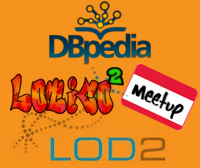
Session, FRI 10:30 - 12:00
Visualization and User Experience
Real-time Big Data Analytics for the Financial News World
News and sentiment affect financial markets. Because of the Internet, electronically published information is the dominant source of information by now. It is not possible anymore for any stock trader to process the inherent news flood. From the often redundant news, less than one of one hundred news is relevant for investment and only extremely insufficiently identifiable by regular keyword search.
We at Clueda have therefore developed a real-time big data analytics system that is capable to extract relevant information and sentiment from unstructured texts by using various associative and semantic text analytics approaches. We implemented a horizontally scalable system with which we can identify market influencing factors much earlier.
The talk will cover a technical introduction into Clueda’s solutions and give a review of the direct business benefits. It will also make clear, how associative and semantic analysis on huge data sets can create clear business value for end users of the systems, in this case stock traders and analysts.
Benedikt Wachinger
Benedikt Wachinger has been working with the semantic extraction of complex knowledge from big data since 2008. He soon realised that new roads have to be taken in order to be successful in the big data and big knowledge fields. Traditional approaches fail when the data becomes too much or when it becomes too complex. He earned his doctorate in bioinformatics where he created a novel text mining system based on big data approaches in order to support research of complex diseases by semantically analysing biomedical publications.
At Clueda he is Head of Product Development and as such responsible for the creation and development of great products from huge data that have been semantically analysed into complex knowledge. He is also responsible for the Clueda.Trader project with which Clueda has won the Best in Big Data award in 2013.
SemCCM: Course and competence management in Learning Management Systems using Semantic Web Technologies
The knowledge embedded into the Learning Management Systems (LMSs) contains great potential, but currently is not utilized well enough because the learning content is mainly tailored for human understanding and not for computer processing. The courses in the LMSs cover certain set of topics that are usually exposed through a few general keywords and areas.
In this paper the SemCCM system that utilizes the state of the art Semantic Web tools, methods and datasets for automatic semantic annotation of LMS courses is presented. The SemCCM system complements the LMSs through extraction and ranking of the relevant DBpedia resources for each of the courses, and uses their Wikipedia categories for more general area determination.
The extracted DBpedia resources, together with their categories represent the specific topics covered by the courses and provide more accurate course retrieval. Together with the users' completed courses, the extracted DBpedia resources are used for determination of the users' competencies.
The SemCCM system presents the analysis results to the end users in several different perspectives, enabling semantically enhanced course and user search, graph based course and competence overview, as well as user comparison.
Ana Gjorgjevik, Riste Stojanov and Dimitar Trajanov
University ss. Cyril and Methodius - Skopje, Macedonia
LD Viewer - Linked Data Presentation Framework
With the growing interest in publishing data according to the Linked Data principles, it becomes more important to provide intuitive tools for users to view and interact with those resources. The characteristics of Linked Data pose several challenges for user-friendly presentation of information.
In this work, we present the LD Viewer as a customizable framework that can easily be fitted for different datasets while addressing Linked Data presentation challenges. With this framework, we aim to provide dataset maintainers with easy means to expose their RDF resources. Moreover, we aim to make the interface intuitive and engaging for both expert users and lay users.
Denis Lukovnikov, Claus Stadler and Jens Lehmann
University of Leipzig



